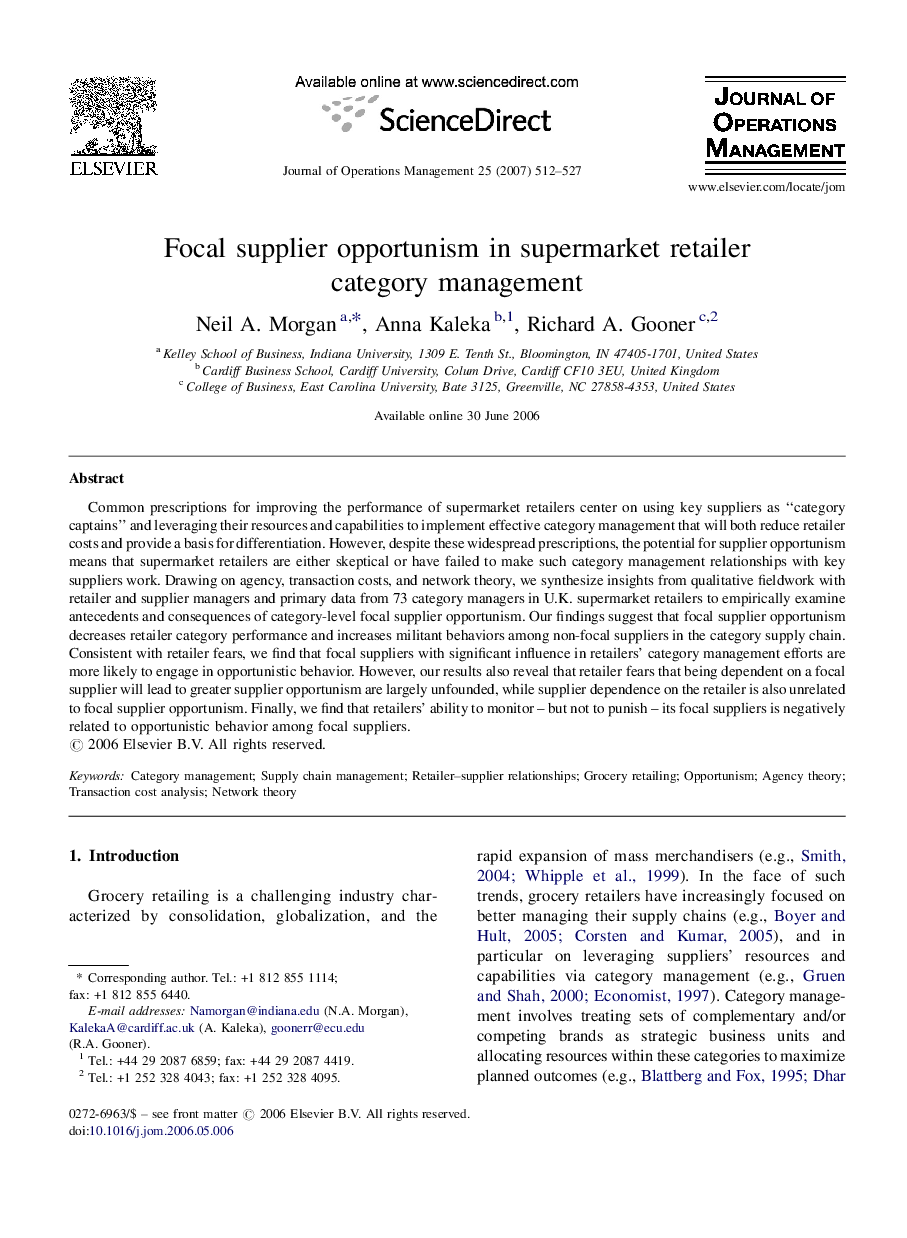| Article ID | Journal | Published Year | Pages | File Type |
|---|---|---|---|---|
| 1032308 | Journal of Operations Management | 2007 | 16 Pages |
Common prescriptions for improving the performance of supermarket retailers center on using key suppliers as “category captains” and leveraging their resources and capabilities to implement effective category management that will both reduce retailer costs and provide a basis for differentiation. However, despite these widespread prescriptions, the potential for supplier opportunism means that supermarket retailers are either skeptical or have failed to make such category management relationships with key suppliers work. Drawing on agency, transaction costs, and network theory, we synthesize insights from qualitative fieldwork with retailer and supplier managers and primary data from 73 category managers in U.K. supermarket retailers to empirically examine antecedents and consequences of category-level focal supplier opportunism. Our findings suggest that focal supplier opportunism decreases retailer category performance and increases militant behaviors among non-focal suppliers in the category supply chain. Consistent with retailer fears, we find that focal suppliers with significant influence in retailers’ category management efforts are more likely to engage in opportunistic behavior. However, our results also reveal that retailer fears that being dependent on a focal supplier will lead to greater supplier opportunism are largely unfounded, while supplier dependence on the retailer is also unrelated to focal supplier opportunism. Finally, we find that retailers’ ability to monitor – but not to punish – its focal suppliers is negatively related to opportunistic behavior among focal suppliers.
